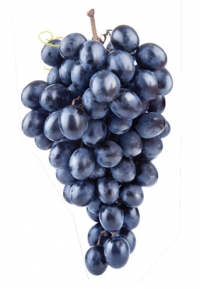Health Protective Effects Of Phytonutrients: Resveratrol
Polyphenols are the compounds present in various fruits, vegetables, coffee, tea, and nuts. They are being found to have certain health benefits. Resveratrol is a polyphenol present in very high concentrations in grapes, red wine, and purple grape juice, and in smaller proportion in peanuts, blueberries, bilberries, cranberries and dark chocolate. It is believed that plants produce resveratrol for protection from bacterial and fungal infection. Resveratrol is commonly known for its anti-aging actions. Most of the anti-aging properties of resveratrol could be attributed to its potent anti-oxidant and anti-inflammatory actions. Additionally, resveratrol is also proven to have anti-cancer, anti-diabetic and anti-hypertensive actions. One of the proposed mechanisms of action of resveratrol may be that it affects the energy production pathways within the cells by preventing degradation of specific molecules called Cyclic Adenosine Monophosphate (cAMP).
Researchers have found resveratrol to be effective in promoting heart health through its antioxidant properties. It helps prevent damage to the blood vessels; it reduces bad cholesterol while increasing good cholesterol, and prevents formation of blood clots. In addition to its antioxidant and anti-inflammatory properties, resveratrol is also proven to have effective blood thinning properties via its action on inhibition of platelet aggregation. Through production of nitric oxide and the relaxation of blood vessels, resveratrol helps to maintain blood pressure levels in optimum range.
Resveratrol is shown to improve whole body glucose tolerance and to delay insulin resistance. Both of these mechanisms are important for its anti-diabetic potential. Resveratrol makes pancreatic cells more sensitive to available insulin, and increases the breakdown of glucose by the cells without increasing their insulin requirements. In addition, resveratrol also prevents the kidney damage caused by high blood sugar (diabetic nephropathy). In a clinical trial, patients with type 2 diabetes were given resveratrol either with or without their standard anti-diabetic medicines. After three months of continuous resveratrol supplementation, it was observed that patients receiving resveratrol showed significant reduction in their glycosylated hemoglobin (Hb1Ac) levels, which are the indicators of long-term glucose control. Their total cholesterol and blood pressure levels also showed significant improvement than the control group’s levels.
Resveratrol can obstruct carcinogenesis in multiple steps. Anticancer properties of resveratrol are attributed to its selective action on killing cancer cells (apoptosis), reduction of blood vessel growth to the tumor (angiogenesis), and by inhibiting the collagen-destructing matrix metalloproteinase (MMP) enzymes resveratrol also has anti-metastatic properties. The anti-carcinogenic actions of resveratrol have been studied in various cancer types such as multiple myeloma, and cancers of the lungs, skin, breast, prostate, stomach, and colon.
We studied the anti-cancer properties of resveratrol and other phytobiological compounds in fibrosarcoma, a highly aggressive cancer of connective tissue*. This specific combination of plant derived compounds reduced cancer cell growth by 80% at 100 μg/mL, induced apoptosis, and inhibited the secretion of MMP enzymes.
Therefore, when incorporated in a daily regimen, resveratrol intake can benefit us in multiple ways by protecting cardiovascular health, increasing energy and endurance and even potentially in preventing Alzheimer’s and Parkinson’s disease.
Ref: MW Roomi, et al., Proceedings of the 102nd Annual Meeting of the AACR, Vol 52, Abstract #1500, page 360
